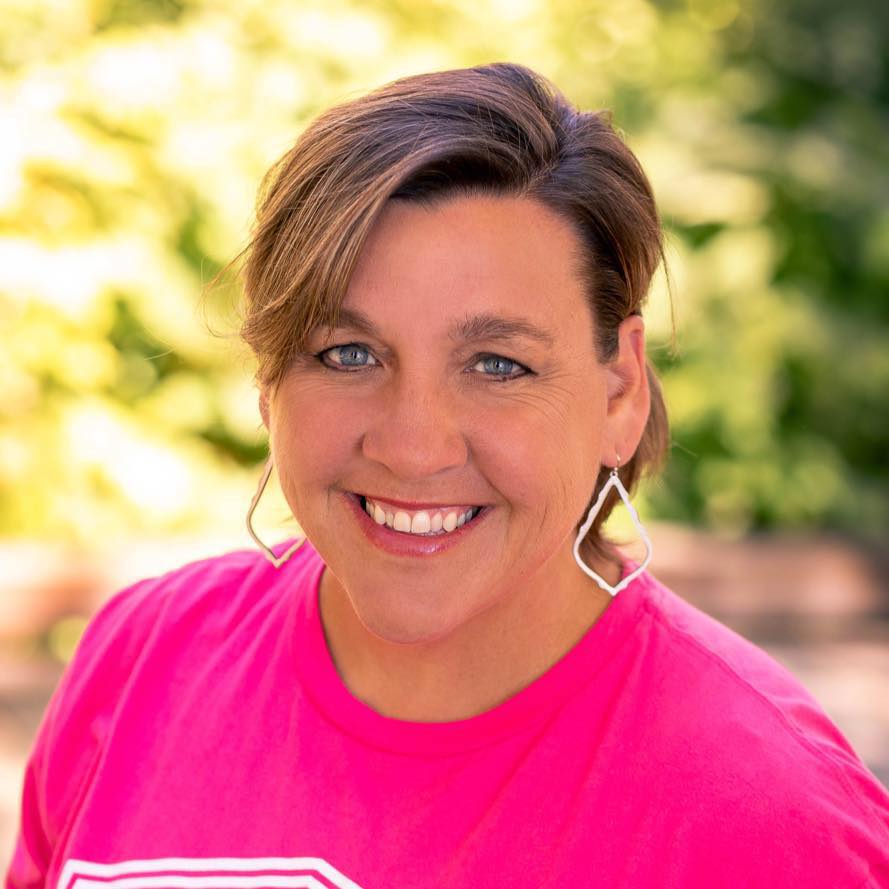
When Jeanine Patten-Coble founded Little Pink Houses of Hope, she felt like she was running on a hamster wheel. She worked quickly and with a sense of urgency — because according to her doctor, she only had a 25% chance of surviving one year.
In 2009, Patten-Coble was diagnosed with breast cancer. In an effort to bring peace and support to those going through the same thing, she founded Little Pink Houses of Hope. A nationally recognized nonprofit, Little Pink offers free, week-long retreats to breast cancer patients and their families. In the comfort of donated vacation homes, they receive much-needed respite from the stress of doctors’ appointments and medical bills.
Patten-Coble first got the idea on a family vacation to the Outer Banks, North Carolina —one day after her diagnosis. She had gone for a run on the beach to clear her head and find the words to tell her 11-year-old son that she was sick. Suddenly, she stumbled upon a deserted compound of houses dotting the shoreline.
“It piqued my interest,” she says. “As I was running back towards the house, I was physically struck with [the idea]: ‘You have to create a place like this for cancer patients to come.’ It was 100% a calling from God that I wasn’t willing to accept right out of the gate. But over time, I decided to listen.”
Today, Little Pink hosts retreats 22 weeks out of the year in a variety of different picturesque vacation spots, for patients who have undergone breast cancer treatment within the past 12 months. When patients and their families arrive at their destination, they have no idea which house they will be staying in. The nonprofit gives them no information on purpose, in order to embrace the idea of being present and living in the moment. Guests are “always overwhelmed and amazed,” Patten-Coble says, by the community that supports them with vacation homes, dinners donated by local restaurants and activities such as paddleboarding and sailboat rides.
Although Little Pink is a nonprofit, Patten-Coble says that it operates heavily under a business mindset. It partners with a property management company, which in turn reaches out to homeowners to ask if they’d be willing to donate their vacation homes for one-week retreats. The retreats are designed to host 8 to 12 families at one time, but it’s always dependent on how many properties are available.
“If we have 10 houses, we’ll have 10 families, and if we have 7 houses, we’ll only have 7 families,” she says. “That home donor aspect is huge for us.”
The organization, which was named the 2021 National Breast Cancer Nonprofit of the Year, also receives corporate sponsorships from businesses and local agencies where the retreats take place.
Retreats are organized in popular vacation spots such as Florida, or along the North Carolina coast. While these areas provide a serene environment for families, they are more susceptible to dire weather conditions.
“In any given year, it might be very hard for a business who’s donated for 5 years to donate, because their business is down from a hurricane,” Patten-Coble says. “It’s really important for us to understand that our job as a partner is to come in and help them. So we’ll go in and pay for everything in that location, knowing that they have supported us over time.”
Like any other nonprofit, Little Pink also relies on fundraising. Recently it hosted a gala and is planning another one for February. It also has a network of volunteers and alumni throughout the country who often organize small fundraisers in their own communities, acting as ambassadors for the organization.
Little Pink’s next goal is to raise enough funds to cover travel expenses for families, in addition to the housing, meals and activities it has always covered, Patten-Coble says.
“We don’t ever want any family to be told they won this amazing trip and then not be able to come because they can’t afford the travel to get there,”
Patten-Coble, named a 2017 CNN Hero, is proud of the fact that many of the families who come on retreats continue to stay in each other’s lives. There are families that go on vacations together later on, and kids that go to camp together.
And she’s seen plenty of families continue to support one another if the cancer patient passes away, sometimes flying across the country to attend funerals. Surviving relatives also stay in touch with Little Pink.
“There are volunteers now, who had been kids on retreat who lost their moms,” she says. “I have directors who’ve lost their wives.”
Patten-Coble says the outpouring she’s seen at Little Pink has reminded her of the generosity of humanity.
“I have a front row seat to the goodness in the world,” Patten-Coble says. “And I am not giving up that seat.”



